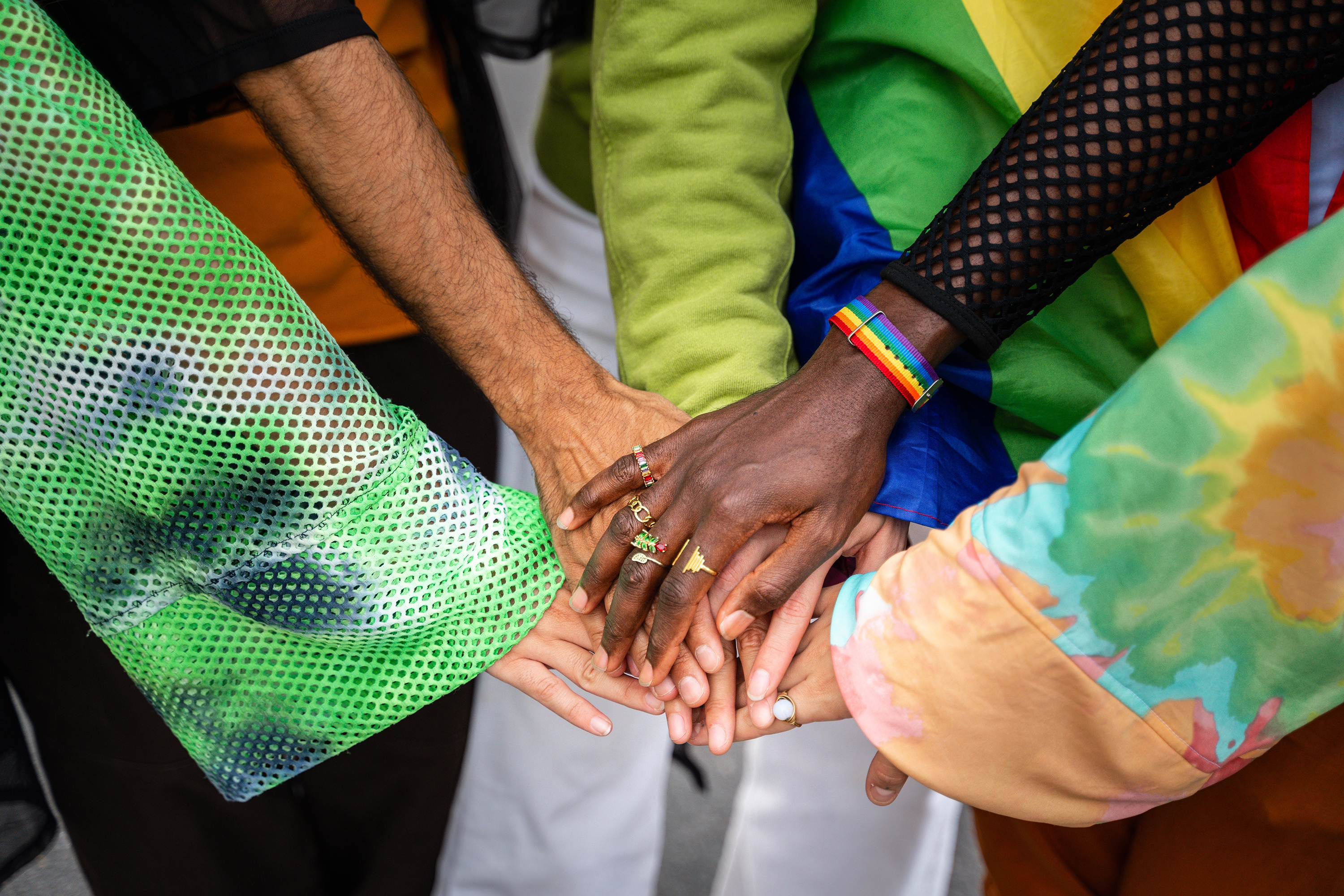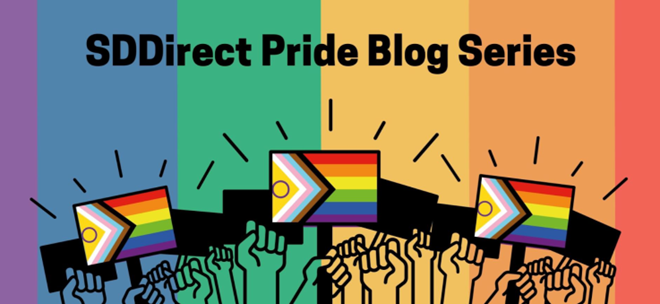LGBTQI+ Inclusion
 People with diverse sexual orientation, gender identity and expression, and sex characteristics (SOGIESC) are at risk of violence, discrimination and different forms of exclusion due to systemic homo-, bi-, trans- intersex- and queerphobia in our societies.
People with diverse sexual orientation, gender identity and expression, and sex characteristics (SOGIESC) are at risk of violence, discrimination and different forms of exclusion due to systemic homo-, bi-, trans- intersex- and queerphobia in our societies.
When this overlaps with other systems of oppression (such as racism and ableism), lesbian, gay, bisexual, transgender, queer and intersex (LGBTQI+) people are at increased risk of experiencing inequalities and injustices.
This is not only the case in society at large, but LGBTQI+ people have historically been left behind in development and humanitarian work, or they have been engaged in tokenistic and extractive ways.
What do we mean by SOGIESC Inclusion?
SDDirect approaches SOGIESC inclusion as a cross-cutting thematic in our work. As specialists in gender equality and social inclusion, we take an intersectional approach to our work and seek to embed SOGIESC inclusion in our research, policy advice and programmatic work. We partner and collaborate with LGBTQI+ organisations and experts to ensure meaningful, ethical and safe approaches that are aligned with, and support, the needs and priorities of LGBTQI+ movements and communities.
We strive to be a strong voice for SOGIESC inclusive approaches with clients, donors and partners who we engage with across thematic areas and sectors. We do so by generating and disseminating evidence and supporting the leadership and voice of LGBTQI+ organisations and activists in these spaces. In the current climate of anti-gender backlash and rollback of LGBTQI+ rights globally, we see it as more important than ever to collaborate across women’s rights, LGBTQI+ rights and other social justice movements and to be explicit in our support for LGBTQI+ inclusive development.
A note on terminology
There’s no universal way to define SOGIESC diversity. While LGBTQI+ terminology is widely recognised, it doesn’t capture all identities, experiences, and struggles. The ‘+’ signals the many identities beyond the acronym. We use both LGBTQI+ and SOGIESC terms in our work, always seeking to understand local contexts and agree on appropriate language with our partners.

SDDirect’s Pride Blog Series
At SDDirect, Pride Month provides an opportunity to reflect, learn and celebrate queer joy and progress made for LGBTQI+ rights globally, while deepening our understanding of the challenges that remain. Through our Pride Blog Series, we continue our exploration of how LGBTQI+ communities are impacted by some of the global development challenges of today and reflect on the barriers and opportunities for LGBTQI+ inclusion within our areas of work.
Our work in this area
We provide research and advice where we analyse the impact of social, political and economic development processes on LGBTQI+ communities from an intersectional lens. This includes understanding how social norms, policies and laws, public services, as well as development and humanitarian programmes and systems affect the lives of LGBTQI+ people. Sometimes this is oart of a GEDSI study or advice.
We also integrate SOGIESC inclusion in programmes across our thematic portfolios and other cross-cutting strategies. In recent years, we have had opportunities to collaborate with LGBTQI+ organisations to develop resources on LGBTQI+ inclusion in flagship programmes in our governance and inclusive societies, gender-based violence, and safeguarding portfolios.
Examples of our LGBTQI+ focused research and SOGIEC inclusive programmes include:
-
The Evidence and Collaboration for Inclusive Development (ECID) programme
-
Report on Ending Violence against LGBTQI+ People: Global Evidence and Emerging Insights into What Works (What Works to Prevent Violence against Women and Girls Programme)
-
The Resource and Support Hub (RSH) and the Safeguarding Hub Eastern Europe
Safeguarding LGBTQI+ refugees in Eastern Europe
As part of its inclusive safeguarding series, the Safeguarding Hub Eastern Europe conducted research and developed resources on LGBTQI+ inclusive safeguarding. This included research to identify safeguarding risks faced by LGBTQI+ refugees from Ukraine accessing humanitarian assistance, which was conducted in partnership with Kyiv Pride.
Ending Violence against LGBTQI+ People Report
This report provides an overview of evidence of violence against LGBTQI+ communities globally, as well as identifies emerging interventions and practice in preventing violence against LGBTQI+ people. The magnitude and severity of violence against LGBTQI+ people revealed by this evidence review is extremely alarming, and show why efforts to prevent violence against LGBTQI+ people must be urgently accelerated.
If you would like to hear more about our work on LGBTQI+ Inclusion, please reach out to Veronica Ahlenback, LGBTQI+ Inclusion Lead, at veronica.ahlenback@sddirect.org.uk